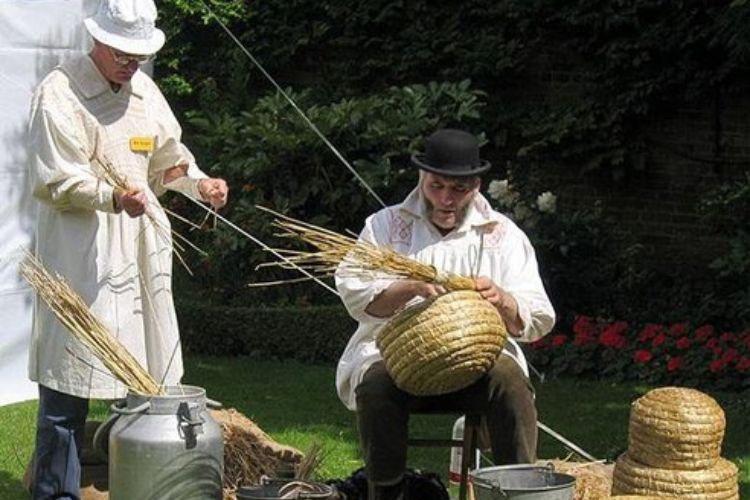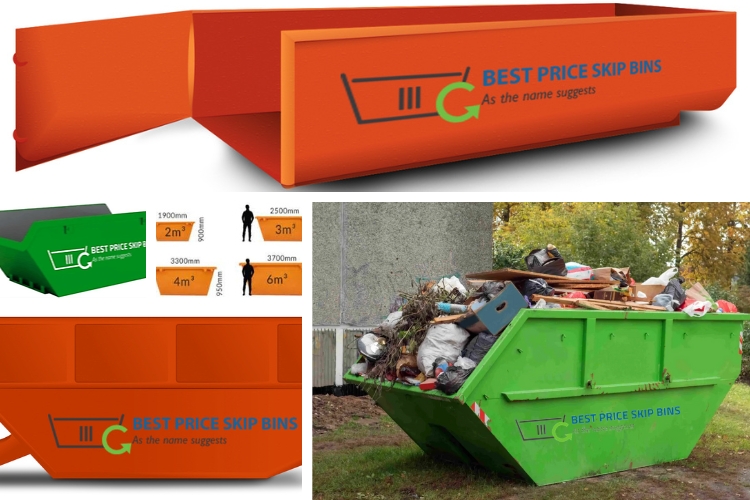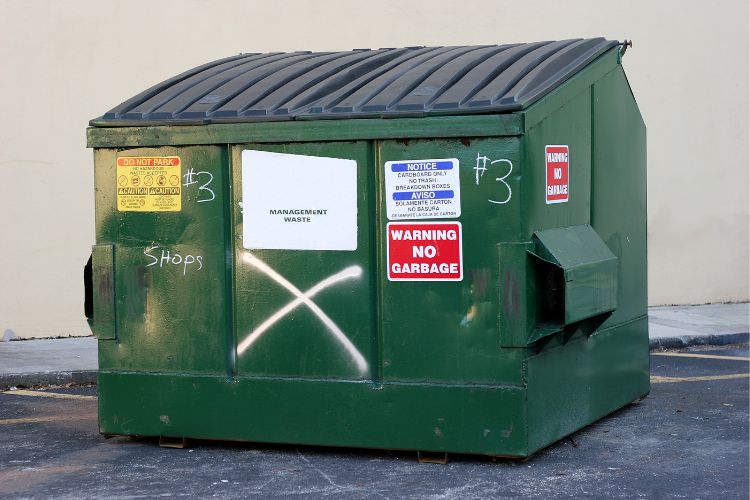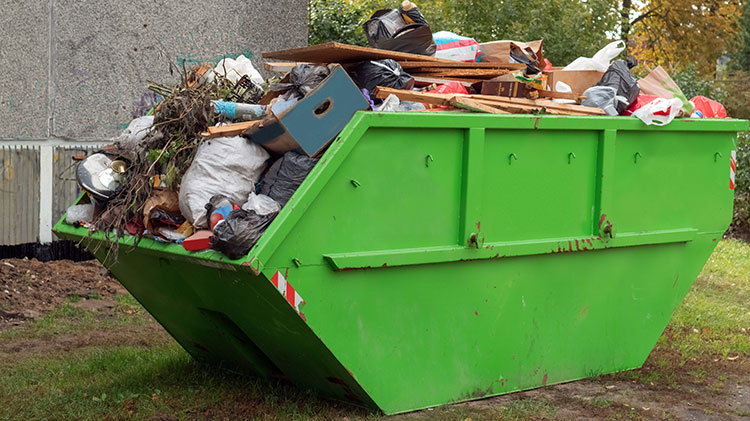The phrase “skip” or “skip bin” is such an everyday term in the Australian lexicon that most people have probably never wondered where it came from. We know what it is, of course, but why call it a “skip”? The term “skip bin” actually has a rich history with a unique origin story, differentiating itself from the term “dumpster”. Well, the name “skip bin” is more than just a label for convenient waste disposal; it’s a nod to the “skip’s” industrial roots, and it survives in modern speech as a testament to the historical innovation of waste management industries.
In this article, we’ll dive into the intriguing history of the name “skip bin”, exploring its integral connection to the early days of modern industry. Join us as we unravel how “skip bins” became an essential part of waste disposal here in Australia.

Where did the term “skip bin” originate from?
While the “skip bin” seems like something of an Australian icon, it’s a term common to most of the Commonwealth, including our friends in Britain and New Zealand, with the term deriving from older forms of the English language. The term “skip bin” originated from a combination of two separate words and their own respective origins.
The word “skip” came to the English language from the Old Norse word “skeppa,” which means to throw or toss. This evolved into “sceppe” in Old English (over 1000 years ago) to later become “skeppe” in Middle English (in medieval times). “Skeppa” originally meant “basket”, and, in fact, “skip” still means “basket” in the Scottish lexicon, while in many other places, including Australia, it has come to mean the larger metal bins that we are all familiar with today.
The word “bin”, on the other hand, comes from the Middle English word “binn”, which meant a “crib” or “manger”, words that, though are now more often associated with where babies sleep, could also mean containers or receptacles of more general storage. While “bin” has become more generally used to refer to any container for rubbish, the addition of “skip” to form “skip bin” now differentiates a regular bin from the open-top metal receptacle we see on construction sites. But how and when did that happen?

Image Credit: www.PlublicationCoach.com
What is the history behind the name “skip bin”?
The term “skip bin” originates from the time of the Industrial Revolution, though the idea of skips is thought to have come from the earlier 1700s. Beekeepers in England would weave together wicker or straw “skeps”, different types of baskets that colonies of bees could use to build a hive. If you think of the stereotypical rounded shape of a beehive (rather than the modern square timber hives), you have a pretty good idea of what those old skeps used to look like.
Later, in the early days of English industry, mill workers used the same term to refer to large containers that held cotton or grain. These skeps had wheels and were more like wagons that could easily move materials from one place to another. Eventually, the name “skip bin” began to refer to places to store waste materials, resulting in its modern usage. This convenient method of waste disposal spread to other Commonwealth countries, such as Australia and New Zealand, and the rest, as they say, is history.
So, next time you see a skip bin, remember the history of its beekeeping and industrial roots!

Is there a specific reason why it’s called a “skip bin” and not just a “bin”?
In short, to distinguish it from other types of bins, such as recycling bins or regular household bins. In the early days of industry, skips held valuable materials for transport to mills and other industrial sites, not waste. Over time, the skip kept its industrial and business association, even as it became more associated with waste management instead. Hence, the term “skip bin” was born, as a skip referred to large storage receptacles and a bin referred to places to store unwanted items or materials.
So, you see, the term “skip bin” pays homage to its industrial roots while also serving as a practical way to differentiate it from other types of bins.
Are there any alternative names for skip bins?
You will probably have heard them referred to as “dumpsters” or “waste containers” in America. This variation in terminology can be attributed to the historical development of waste management practices in different parts of the world. Even for skips, there are several different types and sizes, and all have their own specific uses. You can have “open skips” without lids and “closed skips” with lids. “Roll-on/roll-off (RORO) skips” are designed to be dragged onto trucks rather than lifted, and “mobile skip bins” hearken back to those early days of “skeps” as they conveniently come with wheels attached for easy movement. However, regardless of the name used, the purpose and functionality of these containers remain consistent – providing a convenient and efficient means of collecting and disposing of various types of waste materials.

Why are skip bins not called “dumpster bins” like in America?
The reason why we don’t call skip bins “dumpster bins” or “dumpsters” like in America is just one of many differences in our respective versions of English, just like footpath vs sidewalk and car park vs parking lot. This difference can be traced back to the historical development of waste management systems in each country. In 1935, the American company Dempster Brothers Inc. patented a system of mechanically loading large metal bins onto a truck for easy waste removal. This was called the Dempster Dumpmaster, which over time became simplified in everyday speech to calling all bins of that type “dumpsters”. Without this company’s influence in Britain and Australia, the Commonwealth still uses the old industrial term “skip” to describe these bins.

The modern skip: your friend for efficient waste disposal
We’ve come a long way from the Industrial Revolution’s early days, but the ease and convenience of a skip bin remains essentially unchanged. Whether your needs are industrial, renovation, or simply a spring clean of household waste, consider a skip bin rental for your next big job. Best Price Skip Bins is the name you need for everything skip bin hire, with the skip size and collection convenience for any job you might have. We made unloading and transportation a breeze, with skip bin sizes ranging from small house jobs to large volumes for industrial or construction needs.
Give our friendly team a call today on 1300 791 132 or contact us through our website for the skip bin service experts.
